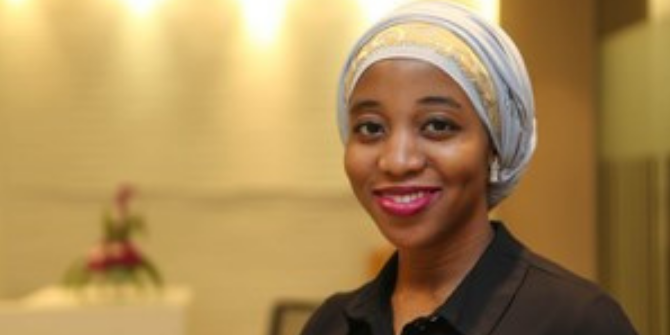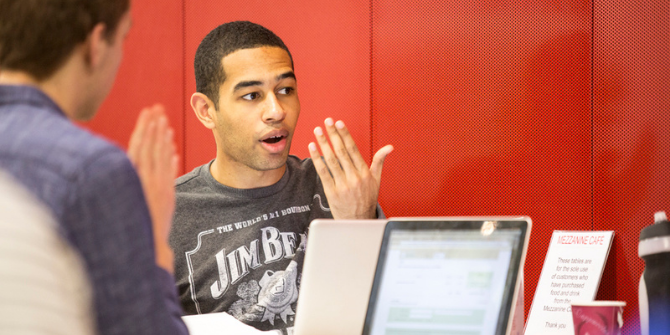Guest blog by LSE alumnus Sanjay who studied Economics (2014) and now works at Roland Berger:
Video games, microcars, automotive testing, energy from waste generation, aftermarket road tyres, medical implants and advanced ceramics. The reason why you can’t spot the trend is because there isn’t one – which nicely summarises my time in consulting thusfar.
The choice wasn’t clear at first. Like most undergraduates looking ahead at the formidable world of employment, I didn’t know what I wanted to do once university was over. Ideas were thrown around – finance, a start-up, a master’s in Spain and even a year out travelling. The decision process only properly started after I had received feedback from Morgan Stanley regarding my sales and trading internship: they told me that although I was motivated, it was clear that it wasn’t by finance. That evening I decided to sit down and try and figure out what I was looking for in a job, a process I had never conducted previously:
- variety on a day to day basis
- intellectually stimulating
- experiencing the world
- working with people who are social and inspiring
- good compensation package
Tough criteria I know – but after speaking to friends, going to career fairs and conducting extensive research, I committed to a career in consulting.
I had secured a job with an operations consultancy but after a few months of working I was eager to move into strategy, fuelled by my desire to have an impact on a company’s top line, as well as exposure to the M&A process. Never before had I realised how much time candidates (should) put into their applications. Although I had limited consulting experience, my academic background and pro-activity within the LSE Student Union seemed to have stood me in good stead, and it wasn’t long before I had interviews lined up with Roland Berger, Strategy&, OC&C, Deloitte and Newton Consulting.
Two tips on this part of the process:
- If you’re a recent graduate, your CV should be one page – and beautiful. Consultants make visually pleasing slides as a day job, so sharp aesthetics impress!
- You should have a three paragraph approach to your cover letter (introduction, why the company, why consulting and why you), addressed to the Head of HR.
Once the interviews were confirmed, it was all about reading books such as Victor Cheng’s Case Interview Secrets, running through interviewer/interviewee transcripts and working on my back-of-the-envelope style market sizing. This was the hardest period because it involves a lot of time. What was helpful was having a number of similar style interviews going on at the same time, enabling me to build my experience of case study type questions.
Deciding on Roland Berger wasn’t difficult, because of its international presence and prestige within Europe. I also got on well with the Senior Consultants, Partners and HR and was reassured by the training programmes, salary and the office Foosball table.
In consulting, there are generally two types of projects – the longer corporate projects and the shorter ‘due diligences’ for private equity clients. After a year and three months, I have been involved in one long-term corporate strategy project and a multitude of due diligences, which all generally follow a similar structure:
- What does the company do?
- How has the addressable market(s) size developed in the last five years, and how is it expected to progress?
- What does the competitive landscape look like?
- What are the customer dynamics?
- Is the company’s business plan reasonable, given the preceding analysis?
As well as the obvious Excel and PowerPoint skills enhancement, consulting has provided me with expansive snapshot industry exposure and financial competency, enabling me to understand what makes a business successful, and given the market dynamics, assess whether a business is likely to meet its targets. Training is an important part of every consultancy, with regular in-house training, complemented by trips over to the HQ in Germany, covering areas such as client communication, strategy, presentation skills, finance and statistical methods.
The biggest adjustment or challenge? Depending on the project, the hours can be long. But like anything, there is an adjustment phase, and I wouldn’t recommend going into consulting if you aren’t willing to put the hard work in. Of course, if you find that consulting isn’t a long term career path for you, the exit opportunities are numerous – whether it’s to industry, finance (private equity, venture capital fund) or starting your own business. Personally, however, I am well and truly kept on my toes in the dynamic, intellectually challenging and social environment that is strategy consulting.
Read about the consultancy sector on our website and use Career Builder to help assess your values and motivations.






May I please have Sanjay’s email address.
Regards,
Triparna.
Hi Triparna,
I’m afraid we can’t give out these contact details – sorry about that. My advice would be to try and connect with Sanjay on LinkedIn.
Matt
LSE Careers
thanks for the information